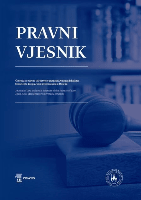
Cambridge Law Journal
metrics 2024
Fostering Innovation in Legal Theory and Practice
Introduction
Cambridge Law Journal, a prominent publication in the field of law, has made significant contributions to legal scholarship since its inception in 1921. Published by Cambridge University Press, this esteemed journal provides a critical platform for advancing discussions on contemporary legal issues, theories, and practices. With a 2023 Scopus ranking placing it in the top 42% of law journals globally, it maintains a Q2 categorization reflecting its academic rigor and relevance. Although open access options are not available, the journal remains accessible to a broad audience through university libraries and academic networks. The coverage of scholarly articles from the past to the present, specifically from the years 1921 to 1939, 1941 to 1998, and 2000 to 2024, ensures that researchers, professionals, and students can explore a rich trove of legal knowledge and perspectives. Engaging with the Cambridge Law Journal not only enables scholars to stay abreast of the latest developments in legal thought but also inspires innovative approaches to understanding and addressing legal challenges in today's complex world.
Metrics 2024
 0.26
0.26 1.50
1.50 1.50
1.50 29
29Metrics History
Rank 2024
Scopus
IF (Web Of Science)
JCI (Web Of Science)
Quartile History
Similar Journals

RED-Revista Electronica de Direito
Advancing Legal Scholarship Through Innovative InsightsRED-Revista Electronica de Direito is a prestigious academic journal dedicated to the field of legal studies, published by the CENTRO INVESTIGACAO JURIDICO-ECONOMICA-CIJE in Portugal. Focused on providing a platform for the dissemination of innovative legal research, this journal aims to bridge the gap between theory and practice, covering a wide spectrum of legal disciplines including constitutional, administrative, and international law. Though currently not categorized under Open Access, RED strives to offer thorough and insightful analyses, making it an essential resource for researchers, legal professionals, and students alike. With the growing importance of interdisciplinary approaches in law, this journal serves as a vital conduit for the latest findings and discussions in the legal field, fostering a vibrant academic dialogue among its readership.

Pravni Vjesnik
Cultivating Insightful Legal Perspectives.Pravni Vjesnik is a peer-reviewed academic journal published by the Pravni Fakultet Sveučilišta Josipa Jurja Strossmayera & Osijek, primarily focusing on the field of law within the social sciences. Since transitioning to an Open Access model in 2016, the journal has broadened its accessibility, allowing researchers, professionals, and students to engage with diverse legal scholarship without subscription barriers. With an ISSN of 0352-5317 and an E-ISSN of 1849-0840, Pravni Vjesnik plays a crucial role in disseminating knowledge and fostering discourse in the legal community, particularly within the context of the Croatian legal system and broader European legal frameworks. Although it holds a rank of #760 out of 1025 in the Scopus database, placing it in the 25th percentile of law journals, its commitment to quality and relevance ensures its importance as a resource for rigorous academic inquiry. The journal's scope is anticipated to expand from 2019 to 2024, promoting ongoing research in contemporary legal issues. This dedication to publishing comprehensive and impactful studies makes Pravni Vjesnik an essential platform for those involved in the legal field.

SYDNEY LAW REVIEW
Contributing to Global Legal DiscourseSYDNEY LAW REVIEW is a prestigious academic journal published by the Sydney Law School, dedicated to the field of legal studies and interdisciplinary analysis of law and its impact on society. With its ISSN 0082-0512 and E-ISSN 1444-9528, this journal serves as a vital resource for legal scholars, researchers, and practitioners in Australia and globally. The journal has undergone several phases since its inception in 1990, reflecting the evolving landscape of legal scholarship and policy. Although currently not an open-access publication, it remains a significant contributor to legal discourse, maintaining a Q4 ranking in the Law category as per the 2023 category quartiles. The SYDNEY LAW REVIEW encourages submissions that critically explore contemporary legal issues, thereby fostering a robust platform for academic inquiry and professional advancement.

European Journal of Legal Studies
Exploring the Frontiers of European Legal ThoughtEuropean Journal of Legal Studies is a distinguished open-access journal published by the European University Institute in Italy, focusing on the multifaceted field of law. Established in 2007, this journal provides a vital platform for the dissemination of innovative legal research and critical analyses, promoting scholarly dialogue across diverse legal disciplines. With an H-index demonstrating its influence and a Scopus ranking of 445 out of 1025 in the Social Sciences Law category, the journal is recognized for its contributions to the academic community, reflected in its Q3 quartile status as of 2023. The European Journal of Legal Studies invites researchers, professionals, and students to engage with its rich repository of legal scholarship, fostering an understanding of contemporary legal issues within a European context. The journal is easily accessible online, encouraging collaboration and knowledge-sharing among scholars worldwide. For further details and to explore its latest articles, please visit its website.

INDIANA LAW JOURNAL
Shaping the Future of Legal ScholarshipINDIANA LAW JOURNAL, a premier publication in the field of law, serves as a vital platform for scholarly discourse and legal scholarship. Established in 1973 and originating from the Indiana University School of Law in Bloomington, this esteemed journal publishes a diverse range of articles, essays, and commentary from both established and emerging legal scholars. With an impressive Scopus Rank of #350 out of 1025 in the Social Sciences domain, placing it in the 65th percentile, the journal is recognized for its contributions to the legal academic community. Its 2023 category quartile ranking of Q2 underscores its significance and relevance, ensuring that published works are widely acknowledged and cited. Although not an open access journal, the INDIANA LAW JOURNAL is committed to fostering robust academic exchanges and enhancing understanding in various legal fields, making it an indispensable resource for researchers, professionals, and students alike. With a history of convergence in publication timelines, it continues to evolve in response to the continually changing legal landscape.

Review of Central and East European Law
Exploring the Intersection of Law and Culture in Eastern EuropeThe Review of Central and East European Law, published by Martinus Nijhoff Publishers, stands as a pivotal academic journal dedicated to the legal developments and scholarly discourse in Central and Eastern Europe. With an ISSN of 0925-9880, this journal has been at the forefront of law and legal studies since its inception in 1975, becoming an essential resource for researchers, professionals, and students alike. The journal offers a rich interdisciplinary approach by integrating perspectives from classics, history, law, and philosophy, as evidenced by its classification across various quartile rankings. Specifically, it holds a prestigious Q2 ranking in Classics and is recognized within the upper echelons of History and Philosophy disciplines. With an accessible focus and insights into the evolving legal landscape, the Review of Central and East European Law continues to contribute significantly to understanding legal frameworks and practices in this dynamic region, ensuring its relevance in academic and professional circles.

AUSTRALIAN LAW JOURNAL
Where Legal Minds Connect and Ideas FlourishThe Australian Law Journal, published by Lawbook Co Ltd, has long been a cornerstone in the legal scholarly community, serving as a vital resource for legal practitioners, scholars, and students since its inception. With an ISSN of 0004-9611, this esteemed journal provides a platform for a diverse array of legal discourse, ranging from analyses of contemporary law to examination of historic legal principles. Though traditionally not open access, the journal continues to uphold a commitment to excellence through a rigorous peer-review process, thus ensuring high-quality research dissemination. The journal's extensive archives reflect its long-standing relevance, covering various periods including 1974 onward, with significant contributions made between 1976 to 1978, 1986 to 1988, and 1993, among others. Engaging with this publication is essential for those seeking to advance their understanding of Australian law and its application, making it an invaluable resource for anyone involved in legal studies or practice.

BUFFALO LAW REVIEW
Exploring the Depths of Legal ScholarshipBUFFALO LAW REVIEW, published by University at Buffalo State University of New York, stands as a pivotal resource in the field of law, offering a comprehensive platform for scholarly discourse and analysis. With an ISSN of 0023-9356, this journal has been disseminating critical legal research since its inception and is currently recognized in the Q2 category of Law for 2023. Although it operates under traditional access options, its significant contributions to legal scholarship are underscored by its positioning alongside notable peers, as evidenced by its rank of #552 out of 1025 in the Scopus rankings for Social Sciences _ Law, reflecting a 46th percentile placement. The journal spans an extensive timeline of converged years, notably including a continuous publication record from 1973 to 2024. Researchers, professionals, and students alike will find BUFFALO LAW REVIEW an essential repository of legal scholarship, discussing key issues and evolving trends within the domain.

VIRGINIA LAW REVIEW
Championing Rigorous Scholarship in Legal StudiesVIRGINIA LAW REVIEW is a preeminent legal journal published by the University of Virginia Law Review Association, recognized for its rigorous scholarship and intellectual discourse in the field of law. With an ISSN of 0042-6601, this journal has maintained a prominent position in academia, reflected in its Q1 category ranking in law and a Scopus ranking of #167 out of 1025, placing it in the top 17% of its field. Drawing upon a rich tradition dating back to its inception in 1967 and covering a broad spectrum from legal theory to practical applications, the Virginia Law Review aims to foster innovative legal thought and engage both scholars and practitioners. While it does not currently operate under an open access model, its contributions to scholarly research are invaluable, providing insights that significantly influence legal practices and policies. Situated in Charlottesville, Virginia, at 580 Massie Road, this esteemed publication appeals to researchers, legal professionals, and students alike, making it an essential resource for anyone eager to delve into the complexities of contemporary legal issues.

Legal Studies
Engaging Minds, Influencing LawLegal Studies, published by Cambridge University Press, is a leading journal in the field of law, recognized for its commitment to advancing scholarly dialogue and critical analysis of legal issues. With an ISSN of 0261-3875 and an E-ISSN of 1748-121X, this prestigious journal has been a key resource for researchers, practitioners, and students since its inception in 1981, and it continues to serve the academic community through rigorous peer-reviewed research up to 2024. Positioned in the Q2 category of law journals and ranked within the 60th percentile among social sciences law publications in Scopus, Legal Studies offers a unique platform for innovative legal scholarship, exploring contemporary legal phenomena and their societal implications. Although not an open-access journal, it provides subscribers and institutional partners with exclusive access to high-quality articles that inform legal thought and practice. The journal’s aim is to foster interdisciplinary perspectives and to challenge traditional viewpoints, making it an indispensable tool for anyone engaged in the legal field.